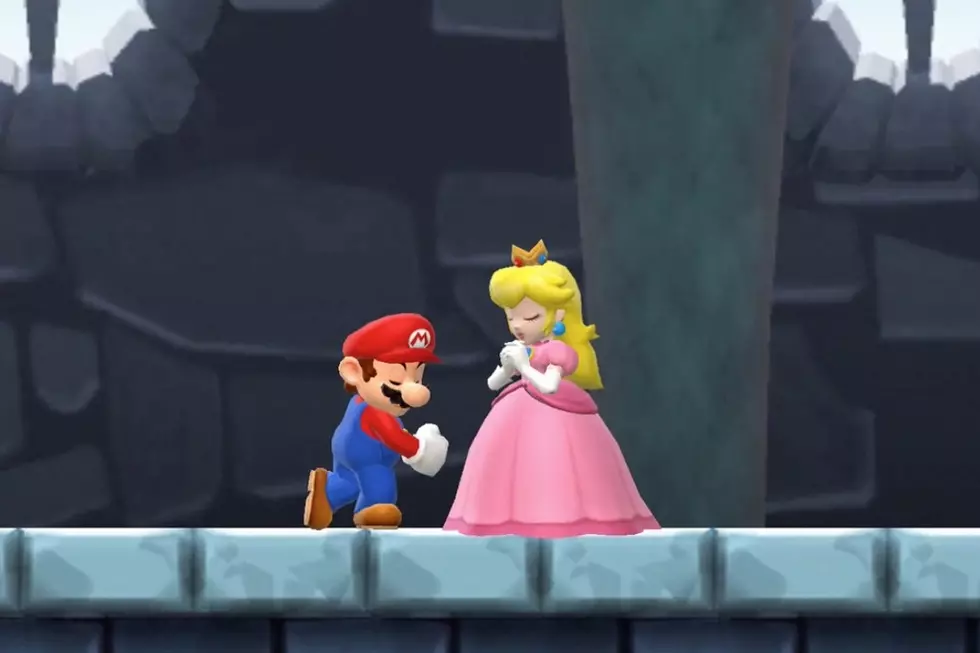
Interview: Jordan Mechner talks Templar and Prince of Persia
Jordan Mechner is perhaps best known for his achievements in the video game world; he kicked-off his career in the '80s when he single-handedly created the best-selling video games Karateka and Prince of Persia -- the latter of course spawning several sequels (selling over 17 million games), and a Jerry Bruckheimer-produced movie, Prince of Persia: The Sands of Time.
But now Jordan’s fascination with medieval lore has led him down a different path, one no less ambitious and exciting. Teaming up with the artists who co-created the Prince of Persia graphic novel, Jordan has written his first original graphic novel about the Knights Templar called “Templar”, which launches in July 2013 and tells the story of a group of crusaders who attempt to smuggle a cache of gold out of Paris without getting themselves killed. I was fortunate enough to chat with Jordan about Templar, the unique differences between creating a graphic novel and a video game, and his thoughts on the Prince of Persia film, three years after its release.
AS: How long has 'Templar' been in the works, and how has it evolved since you first came up with the idea?
Mechner: Templar's been five years in the making. To turn it from a 300-page script into an almost 500-page graphic novel was a marathon effort for the illustrators (LeUyen Pham and Alex Puvilland). In the process, we kept finding ways to make the story tighter and stronger, which sometimes meant going back and rewriting and redrawing pages that had already been done. The finished book is very true to the original script, only better -- I think!
AS: Aside from the obvious difference in medium, what are the unique challenges in creating a graphic novel as opposed to developing a video game? Are there any key similarities?
Mechner: Having created stories in three mediums -- video games, graphic novels and screenplays -- I wish I could say there's a lot of carry-over, but the fact is, all three are very different, and each required basically a separate apprenticeship to learn.
Video games are stories that are designed to be played; the key question isn't, "What are the characters doing?" in a sequence, but, "What is the player doing?" Movies are stories that unfold in time, with a precise mesh of sound and moving images evoking a viewer's suspense and empathy for the characters.
In a graphic novel, the writer and illustrators can't control the reader's pace the way a filmmaker can. The most we can do is lead the reader's eye across the page. Certain kinds of complex action sequences that film and video games excel at -- for instance, a battle scene, or a chase -- are extremely difficult to do in a graphic novel. You can only demand so much from the reader in terms of tracking complex action from one panel to the next. The story has to be communicated through static poses, with facial expressions and dialog, framing and page layout carrying a lot of the story.
AS: How closely did you work with your illustrators on 'Templar'?
Mechner: Extremely closely. It was a constant back-and-forth, with a lot of discussion at every stage. LeUyen and Alex would do a chapter as rough pencil thumbnails; I'd give them notes, go back and make changes to the script to incorporate their feedback and ideas; they'd redo the thumbnails, and so on until we were all satisfied. It was a great collaborative process. They're accomplished storytellers in their own right as well as amazing artists, and the book is immeasurably better for it.
AS: Are there any plans at the moment to turn 'Templar' into a video game? If so, what kind of game would it be? (RPG, first person shooter, etc.)
Mechner: Not at the moment!
AS: Now that you've delved into graphic novels, do you plan to devote your full attention to working in the medium?
Mechner: I love creating graphic novels, but I also love making movies and video games. I'd hate to have to give up any one of them... and hopefully, with luck, I won't have to!
AS: You worked on the screenplay for the Prince of Persia movie. Now that it has been some years since the film came out, what are your most vivid memories of the experience? Is there anything you regret about your time on the project, or the film itself?
Mechner: I'll never forget my first day on set, standing in a spectacular desert landscape in Morocco in the 125-degree heat. To see this incredible production coming together, with hundreds of people from the film crew to armorers to animal wranglers, all working to make physical reality of something that began as pixels on an Apple II computer screen, was mind-blowing.
"Regret" is a word that I think creative people shouldn't use, because things that seem like setbacks or frustrations often lead to something valuable down the road, in ways you wouldn't have predicted. When you sign up to make a big-budget studio movie, you're signing on to something that's going to get bigger than any one person can control -- not the director, not the producer, not the studio, and certainly not the first screenwriter, which is what I was. The screenplay I wrote is what got the ball rolling, but it wasn't the finished movie.
AS: Are there similar elements to your Prince of Persia games present in 'Templar' that your fans can anticipate?
Mechner: Templar and Prince of Persia are both fun, swashbuckling action-adventures that hark back to a tradition of stories and movies like Indiana Jones and Robin Hood -- stuff I loved as a kid and still do. Beyond that, there is a certain mystique about the Knights Templar that's always fascinated me, and which ties not only into Prince of Persia but also The Last Express. The Templars went to the Middle East during the Crusades, at a time when the Muslim world was more culturally advanced than the West in many ways, possessed of science and knowledge that seemed like mysticism or even magic. The ideas and legends they brought back are still with us, and Templar and Prince of Persia both embody that.
Take a peek at a couple of pages from the graphic novel below; for more info about 'Templar," head on over to Jordan's official site.
More From Arcade Sushi








![Conniving Thieves Do What They Do Best in Uncharted: The Lost Legacy [Preview]](http://townsquare.media/site/550/files/2017/06/uncharted-lost-legacy.jpg?w=980&q=75)
